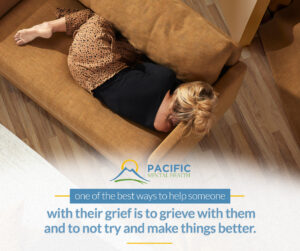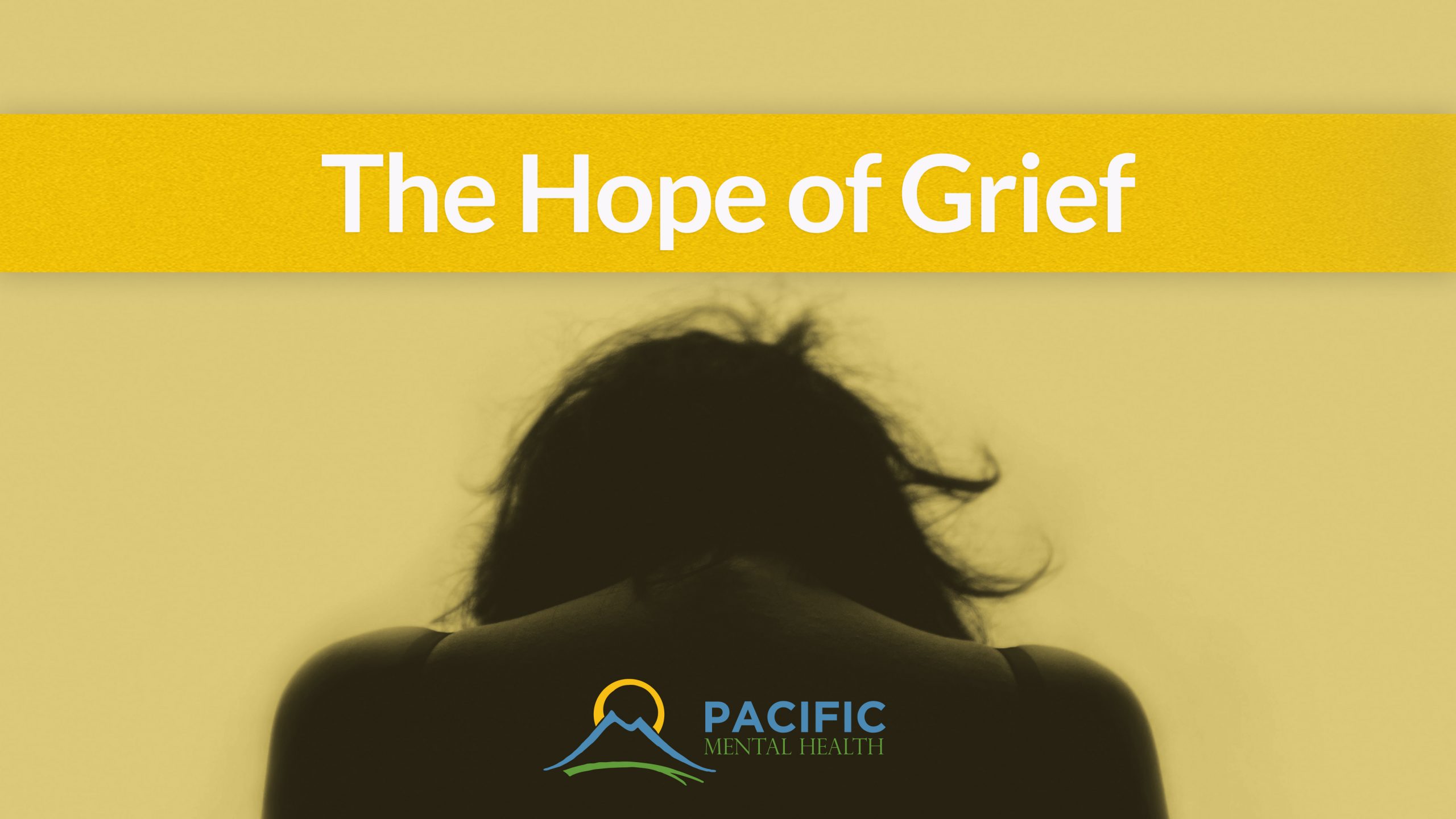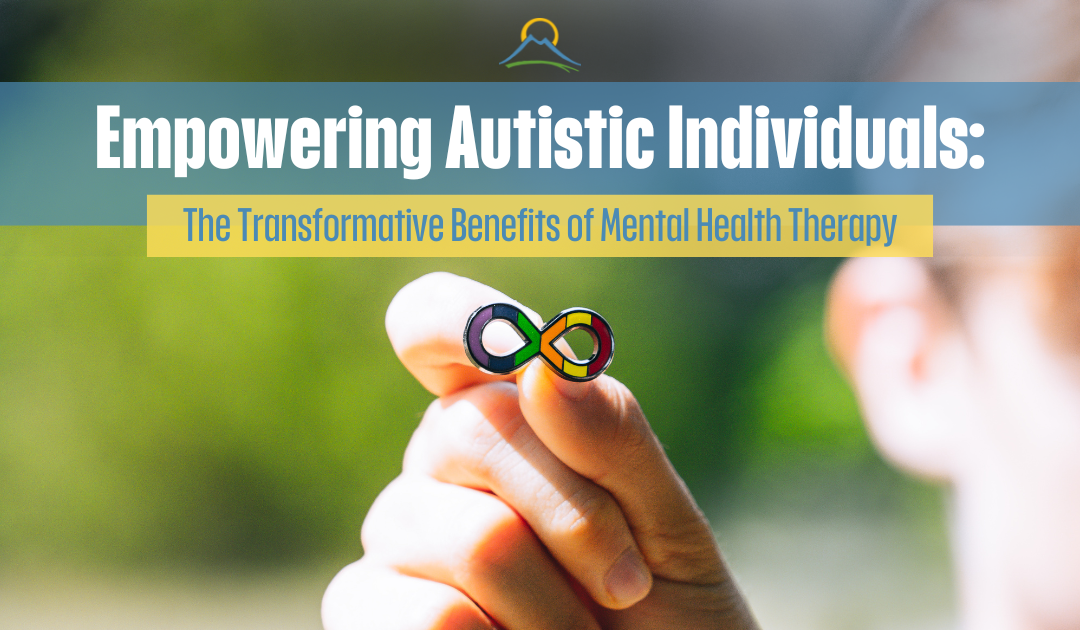
A Pacific Mental Health counselor shares her experience with grief.
Several years ago, a high school student in my town committed suicide. Even though she was a stranger to me, I was overwhelmed with grief, and could not shake the knowledge that she died so close to where I lived. “Maybe I could have done something to stop her?” I asked myself. I was trying to solve something that was not solvable. It was an attempt to make sense of what happened, as though I could change the outcome. Denial and omniscience are familiar companions to many of us in the face of trying to bear whatever is “too much.”
As the days passed, I began to take notice of the community response. Friends and strangers left flowers and momentos near the woods, and others organized a candlelight vigil. It was moving to see a large response from the community, many of whom had never met her. These actions were a way to express a kind of collective grief that brought comfort not only to her family but to those of us who felt powerless in our grief.

It wasn’t long before I found myself thinking about her less and less. Life returned to normal for me, which I attributed to the reality that she was a stranger. I began to notice the communal grief was quickly dissipating as well. Social media postings and handwritten notes in chalk on the sidewalks declared messages of “positivity.” Pretty pictures of birds and rainbows filled the concrete, and the focus changed from mourning her loss to the topic of suicide prevention.
There is nothing wrong with these expressions in and of themselves. We have many creative ways of managing and navigating grief, and how we do so is largely dependent on what is culturally acceptable. What stands out to me within US culture is the tendency to skip over deep mourning and prolonged grief in an effort to get back to “normal.” Put simply, we want to feel better and want others to as well. This is understandable, because grief is costly. It hurts. It threatens to consume or stake a permanent claim in our lives. Crying is exhausting, and tears are often something we feel apologetic for. Grief expressed loudly and openly is discouraged, beginning at a young age. How many times have you heard a parent admonish tell their child for crying?
And yet, unexpressed grief does not allow us to heal. Grief will not disappear, and even when we try to squash it. It will find somewhere to go. Addiction, self-harm, abusive relationships, self-hatred, despair, chronic busyness–these are all potential signs of unexpressed grief. This might sound strange, but what would it look like to not be “positive” in the face of grief and loss, but instead to “weep with those who weep?” [1] and to attune to and reflect what is true in the moment–heartache and pain? It may seem counterintuitive, but one of the best ways to help someone with their grief is to grieve with them and to not try and make things better. People who are grieving need others who are willing to respond in a way that matches what is true, and to put aside our own needs to have comfort and answers. They need to be given plenty of space and time for their grief, and to be surrounded by those who will not shun or look away from what feels unbearable. In my own seasons of deep grief, I have wanted those I love to just be with me, and to say “I see you are hurting. I am here.” This is profoundly comforting and gives me hope that the waves of grief will not suck me under for good.
Resisting the urge to solve or take away another person’s grief, including our own, is challenging work. It takes courage, and a capacity to tolerate feelings of inadequacy and powerlessness. And yet it is precisely in that place–where we meet and identify with another in their grief or despair–that we can together create the scaffolding for making a way out of the pit. We can not solve or eliminate grief, but we can face it in ways that are healing and that allow life to enter where only death seems possible.
1 -Romans 12:15.
Schedule an appointment with a trained mental health care professional at Pacific Mental Health to cope with grief or other mental health challenges. You can also read more articles about mental health topics written by Pacific Mental Health counselors and therapists on our blog.







0 Comments